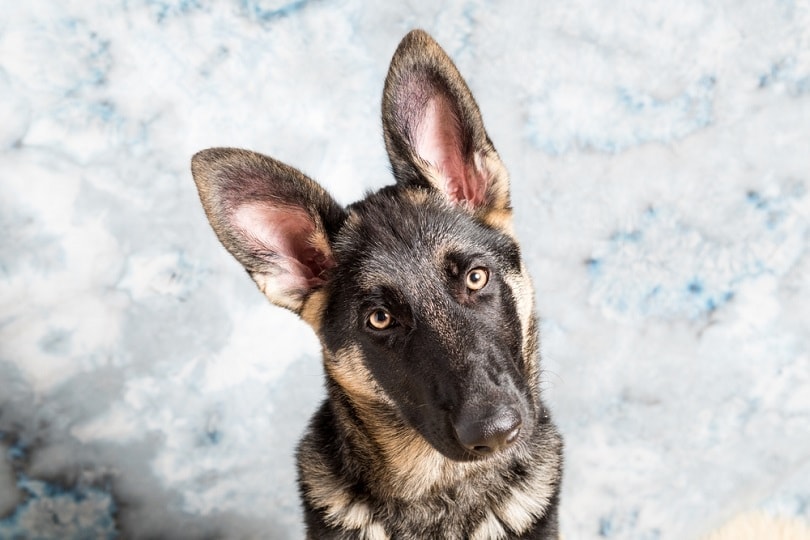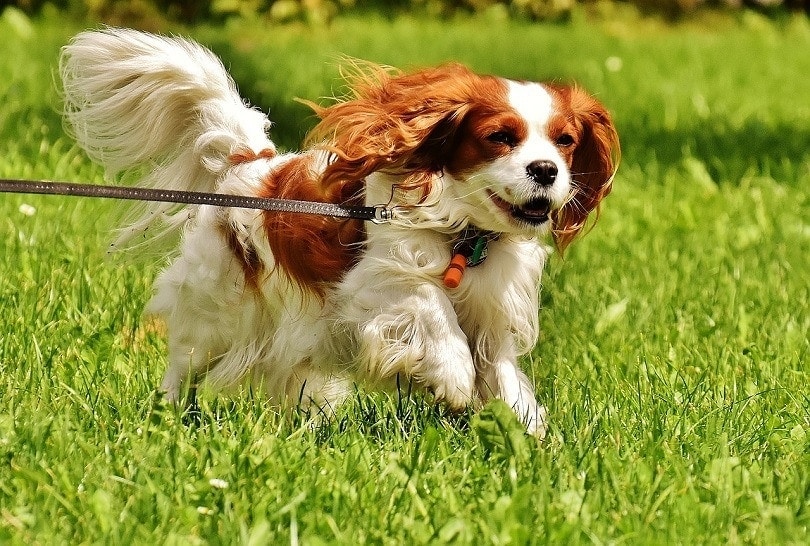Why Won’t My Dog Pee Outside? 6 Possible Medical & Behavioral Reasons (Vet Reviewed)
Updated on
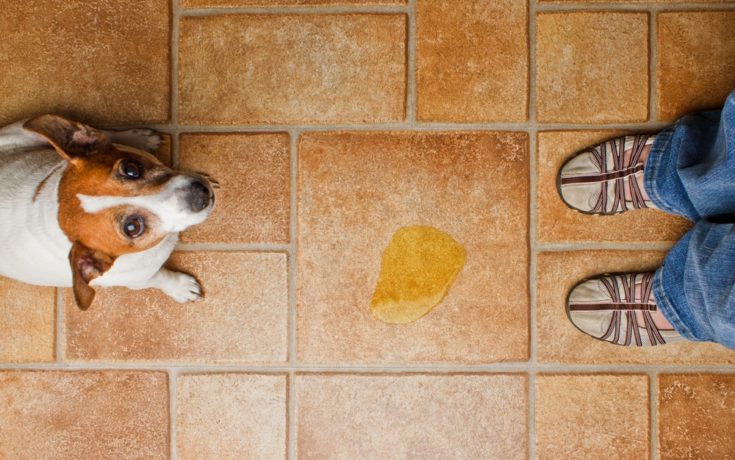
Although we still love our grown dogs as much as we did when they were puppies, most of us can agree that they can get a little gross as they get bigger and older. They like to roll around in things that they find while on walks, they are not great at grooming themselves, and some don’t even want to go outside to pee.
If you are having a problem with getting your dog to pee outside, you are probably wondering what to do about it. Only once you understand the reason that it’s happening can you take steps to correct the problem and get your dog to finally start peeing outside. Here’s what you need to know.
The 3 Medical Reasons Your Dog Won’t Pee Outside
Unfortunately, some medical conditions could result in your dog not being able to hold their pee as well as they should be able to. If your dog used to pee outside just fine but has unexpectedly started to go inside, they may have developed a health problem that your veterinarian should address. Medical conditions that could make your dog pee on the carpet inside instead of the yard outside include the following.
1. Urinary Tract Infection
After developing a urinary tract infection, a dog can feel a frequent need to urinate. So, even if they just went pee outside, they could end up having an accident on the floor soon after coming inside. Sometimes, straining and/or whimpering accompanies peeing when a dog has a urinary tract infection.
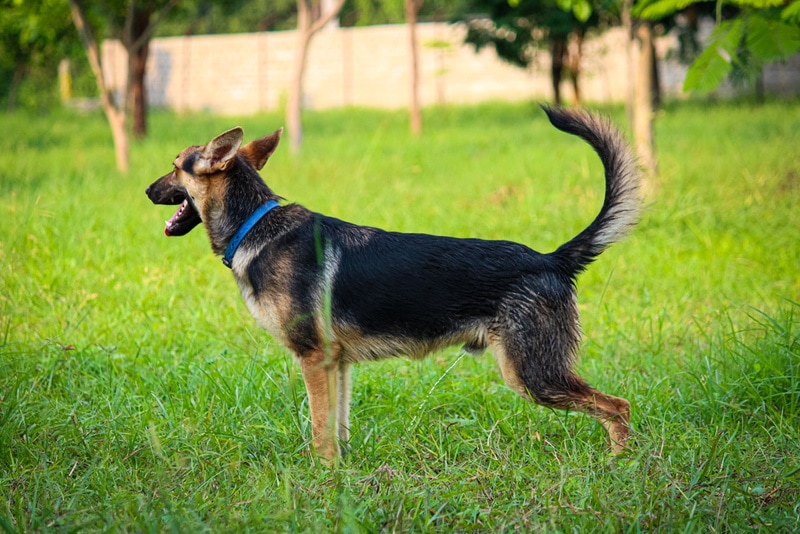
2. Diabetes
Diabetes can cause your dog to drink more water than they would normally need, which can result in the need to urinate more frequently. The need to urinate can come on quickly, and if there is not easy access to the outdoors, your home’s floor becomes their bathroom.
3. Kidney Disease
Early signs of kidney disease in dogs are increased water intake and frequency of urination. Dogs with kidney disease tend to have accidents in the house overnight and when nobody is home to let them outside often enough. As the disease progresses, a pooch may not even try to go outside to urinate.
If you suspect that your dog may be developing or has developed any of these health conditions, it is important to schedule an appointment with your veterinarian as soon as possible. The sooner that these problems are addressed, the better chance your pup will have of recovering.
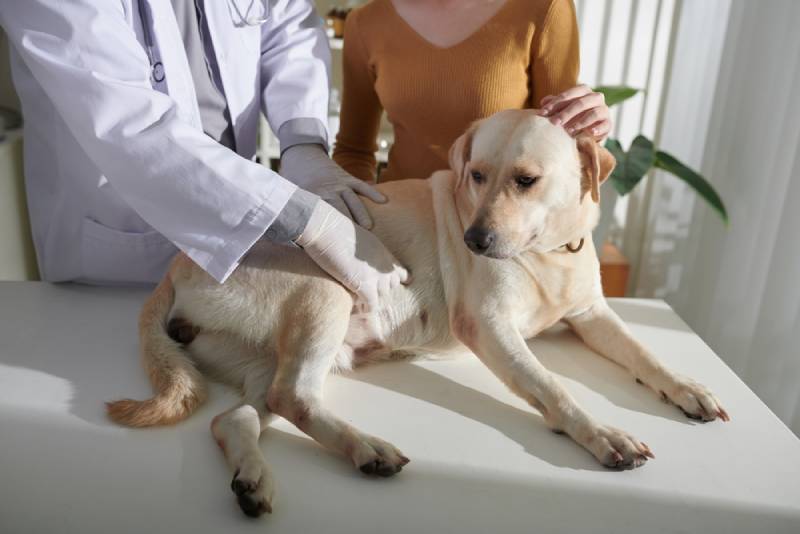
The 3 Behavioral Reasons Your Dog Won’t Pee Outside
1. Anxiety Outdoors
Some dogs become afraid of something or get anxious when they spend time outside. It could be a new dog that moved in next door, a weird sound coming from a neighboring home, or even the way that the moon is shining on the ground. If your dog has a bad experience while outdoors, they may become anxious to even think about going out there and would rather just pee on the floor inside instead.
If your dog is scared or anxious about something outside, look for signs of the source. Pay attention to what your dog is looking at whenever you take them outside. If you can’t determine the source and effectively address it, you can work with a trainer to get your dog more comfortable spending time outside.
2. Marking Territory
If your dog still uses that bathroom outside but is also peeing inside, they could be doing so to mark their territory. This typically happens outside, but some dogs end up wanting to mark territory indoors for some reason. For example, if a friend’s dog comes to visit, your dog may prefer to pee inside and mark their territory to cover the scent of the visiting dog.
Marking territory indoors can be a result of being in heat, feeling anxious about strangers in the house, or dealing with the stress of furniture being rearranged. Territory marking indoors is usually a temporary problem, but if you can’t get your dog to stop, you may have to call a trainer in or talk to your veterinarian about possible health problems.
3. Potty Training Problems
Sometimes dogs seem to take well to potty training but then revert to having accidents inside instead of letting their owners know that they need to go outside. This is most commonly a problem for puppies, but even older dogs can have potty training problems. If you cannot find any other reason for your dog peeing inside instead of going outdoors to handle their business, it is a good idea to get back to the basics and start potty training over again.
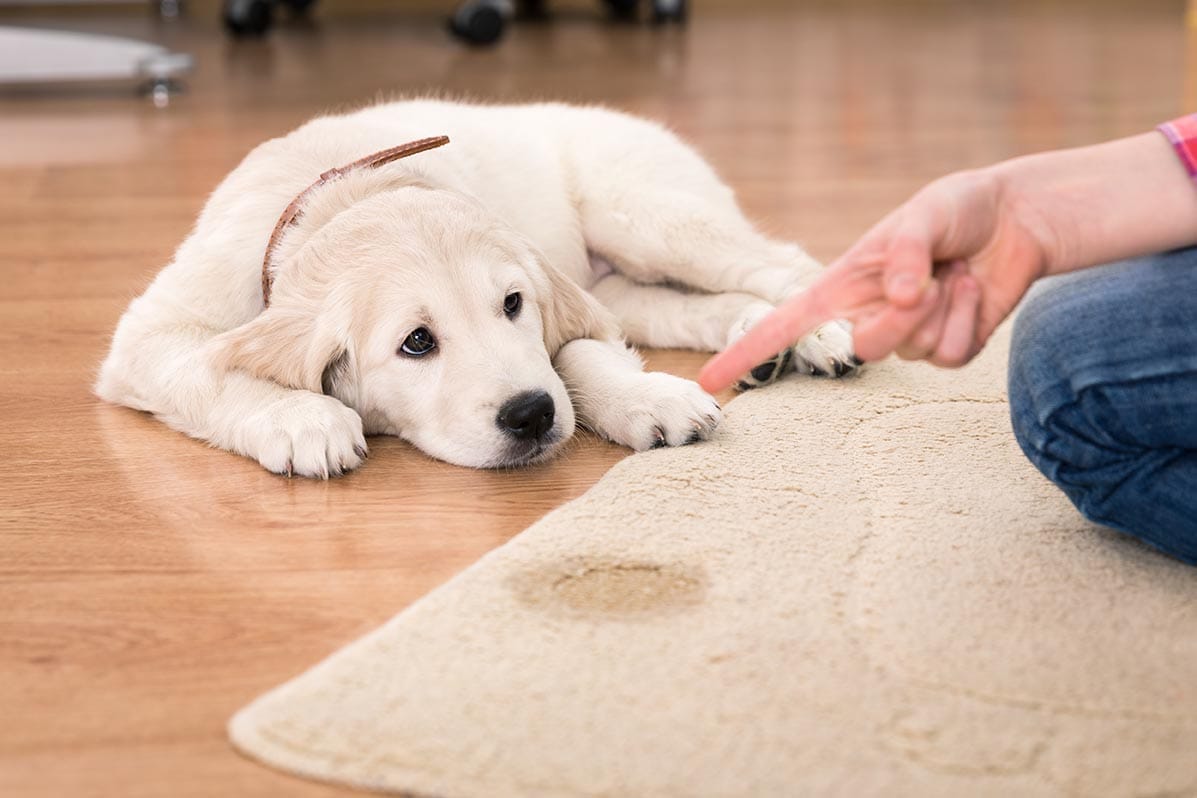
Final Comments
There are various medical or behavioral reasons that your dog might be shunning the outdoors in favor of peeing inside. It is just a matter of determining the exact cause of the problem so it can be properly addressed. If you can’t fix the problem yourself, don’t be afraid to reach out to your veterinarian or a professional dog trainer for guidance and support.
Featured Image Credit: MCarper, Shutterstock



